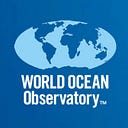R.E.S.C.U.E part one
We are beginning a multi-part series entitled RESCUE, outlining a new plan for the ocean and a new perspective to enable a new set of actions: from the smallest to the largest solutions and inventions, to radical methods and policy changes for a sustainable future.
RESCUE is a multi-part series entitled RESCUE, outlining a new plan for the ocean and a new perspective to enable a new set of actions: from the smallest to the largest solutions and inventions, to radical methods and policy changes for a sustainable future.
The earth is under siege. Covering 70% of the planet surface, and the essential element in the water cycle that sustains all aspects of human life, the ocean is the place for rescue and the future of human survival. Integrating climate, freshwater, food, energy, health, trade, transportation, policy, law, security, community, and culture, the ocean is the system that will protect and provide, secure and sustain our future.
Through the best intent and good office of the United Nations, national and regional governance, the academic and NGO community, and concerned citizens worldwide, much progress has been made in ocean research, data collection, increased capacity and best practice, thousands of acres of marine areas have been protected, and public awareness has increased and engagement expanded in response.
But it has not been enough — in time or substance, and the recent 2022 UN Ocean Summit of world ocean leaders in its final declaration stated: “We are…deeply alarmed by the global emergency facing the ocean…While progress has been made towards the achievement of some of the targets, action is not advancing at the speed or scale required to meet our goals. We deeply regret our collective failure…and we renew our commitment to taking urgent action and to cooperating at the global, regional and subregional levels to achieve all targets as soon as possible… “
This determination is itself limited as it focuses only on the goals previously defined and does not include other areas of transformational change that are outside the UN purview, but are critical to the continuity of society through radical modification of values, structures, and behaviors. We, here on World Ocean Radio, are presumptively proposing RESCUE, a new plan, to be presented in ensuing editions as an expanded paradigm for action.
In the Prologue to “The Silent World”, ocean explorer and communicator Jacques Cousteau writes,
We have tried to find the entrance to the great hydrosphere,
to the ocean world that is our life source and sustainer. Since then, there have been decades of response — in science and observation, policy definition and proposal, the designation of some coastal resources and marine protected areas, and the engagement of a vast community of scientists, educators, environmentalists, and government officials — a global initiative frustrated by denial and contravention. Thus, the door remains closed, and we have every reason to be “deeply alarmed.”
This collective ocean investigation has focused primarily on science and observation, policy and some regional international agreements, but the hydrosphere is so much larger and more complicated, and there are differing forms of knowledge, factors that must be incorporated into any exploration of transformational change. Here is a list of additional considerations, each with its own focus not necessarily integrated into the focus above:
- Context Expansion: the world water cycle and climate consequence
- Emerging technology and invention
- Eco-Finance: natural asset value and novel financial instruments
- Ocean Literacy: education and trans-generational engagement
- Advocacy: political will through global communications
- Ocean Connections: shared understanding through cultural traditions
- Articulation of an Ocean Ethos: new values, structures, and behaviors
- A Suggested Vision for a New Hydraulic Society
“We have tried to find the entrance to the great hydrosphere…,” writes Cousteau. But there is no single door; there can be no single approach to a fluid system, thus the UN’s Decade for Ocean Science or Goals for Sustainable Development are but two lanes of approach to the problem, that can be only partially successful because they fail to include so many other, equally necessary, equally dynamic, equally vital parts and pathways to the solution. The ocean, indeed all of Nature, is a-linear, with infinite points of entry, each essential to the whole. We must start everywhere.
So, on to RESCUE: A plan for specific action and public participation:
RESCUE:
R for renewal
E for environment
S for society
C for collaboration
U for understanding
E for engagement
